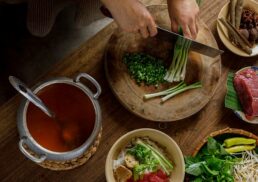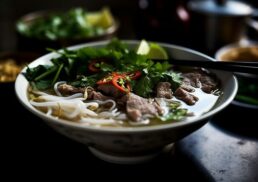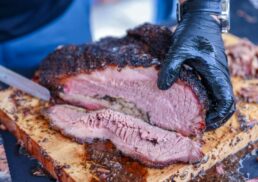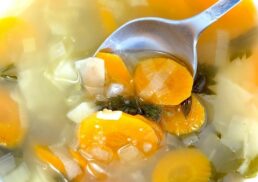Welcome to the fascinating world of specialty coffees, a journey of passion, expertise, and craftsmanship that has captivated coffee drinkers across the globe. From its rich history to its diverse growing regions, specialty coffees represent a unique intersection of art, science, and sustainability. Are you ready to explore the intricate process behind your favorite cup?
Throughout this exploration, we will uncover the secrets behind the exceptional quality of specialty coffees, meeting dedicated farmers, skilled roasters, and knowledgeable baristas who bring these distinct flavors to life. With every sip, you will gain a deeper appreciation for the complex journey from farm to cup and the vibrant culture that surrounds this captivating beverage.
Table of Contents
Key Takeaways
Specialty coffee is distinguished by its high-quality beans and evaluated through the Q Grade Score Sheet.
The journey from farm to cup requires dedicated individuals, with farmers prioritizing quality over quantity and baristas crafting specialty drinks that showcase unique flavors.
Choosing specialty coffees involves understanding the Q Grade Score, selecting sustainable certifications, and supporting ethical farming practices for a superior taste experience.
Defining Specialty Coffees

So, what makes specialty coffee stand out from the rest? It all begins with the beans – high-quality coffee that scores 80 points or above on a 100-point scale, grown with meticulous care and roasted to enhance its natural flavors. These beans are the foundation for a world of specialty coffee that is as diverse as it is delicious.
Only about 10% of all coffee produced meets the rigorous standards of specialty grade quality. This exceptional specialty quality coffee is cultivated at elevated altitudes, with the farmer’s diligent attention to detail ensuring that only the finest beans make it to your cup.
But how do we determine the quality of these beans? The answer lies in the Q Grade Score Sheet, a comprehensive grading system that evaluates every aspect of the coffee, from aroma to flavor and defects.
The Q Grade Score Sheet
The Q Grade Score Sheet serves as a fundamental instrument in evaluating the standard of specialty coffee. It uses a set of criteria with an associated scoring system to evaluate elements such as:
Aroma
Flavor
Acidity
Body
Aftertaste
This comprehensive analysis is dependent on the expertise of certified coffee tasters or licensed Q Graders, who keenly identify coffee quality using a method called cupping to assess it.
Cupping involves roasting coffee and brewing it with hot water to evaluate its sensory characteristics, such as:
acidity
body
flavor
aroma
This intricate process creates specialty coffee devotees and helps to build a community of specialty coffee devotees who appreciate the quality and nuances of these coffees.
Armed with a deeper grasp of the Q Grade Score Sheet, we can further explore the beans contributing to the specialty coffee’s uniqueness using a specialty coffee grading sheet.
Specialty Coffee Beans
Specialty coffee beans are:
Carefully chosen, sourced, and roasted to enhance their characteristics and bring out the unique flavors that set them apart from typical coffee beans
Often grown in specific regions at high altitudes, contributing to their distinctive flavor profiles
Renowned for their exceptional taste, favored by coffee aficionados and connoisseurs alike.
The meticulous selection and roasting process that goes into creating these exceptional beans involves selecting the finest beans from specific regions, and then roasting them to highlight the best flavors and characteristics of the coffee. While specialty coffee beans may come with a premium price tag, their quality and flavor make them a worthwhile investment for coffee lovers seeking the ultimate coffee experience.
The Journey from Farm to Cup
The sphere of specialty coffee is a harmonious blend of individuals and processes, each contributing significantly to the manifestation of the beans’ unique flavors and characteristics. The journey of specialty coffee involves:
Dedicated coffee farmers cultivating the beans at high altitudes
Green coffee buyers assessing the quality of the beans
Expert roasters creating custom profiles for the beans
Skilled baristas crafting the perfect cup
Every step of this journey is integral to the specialty coffee experience.
As we probe further into the duties of these vital contributors, we’ll gain greater insights into the complex process underpinning the superior quality of specialty coffee. Let’s begin by exploring the role of the coffee farmer, the foundation of the journey from farm to cup.
The Coffee Farmer
The coffee farmer is the heart of specialty coffee production. Their dedication to cultivating coffee at elevated heights, with unwavering attention to detail, ensures the highest quality beans make it to the roaster. But it’s not just about growing coffee; these farmers prioritize quality over quantity, perfecting their approach to growing and picking beans at peak ripeness.
Supporting quality-driven coffee farmers ensures not only the creation of top-tier coffee, but also strengthens individuals, families, and communities globally. This commitment to quality and sustainability is a crucial aspect of the specialty coffee industry, and sets the stage for the next step in the journey: green coffee buyers.
Green Coffee Buyers
Green coffee buyers play a pivotal role in the specialty coffee lifecycle, as they are responsible for:
Evaluating and selecting the green coffee beans that will ultimately become the foundation for a delicious cup of coffee
Being SCA-certified and possessing a keen understanding of coffee quality
Using the Q Grade Score Sheet and cupping techniques to assess the beans
Selecting the best beans for their offerings enables green coffee buyers to provide top-quality coffee to customers. With the beans selected, it’s time for the next important player in the specialty coffee journey: the roaster.
The Roaster
The roaster is a skilled artisan who applies scientific principles and experience to achieve specialty level roast profiles, enhancing the coffee’s natural flavors. The roasting process involves heating the beans to a specific temperature and then cooling them rapidly, with the roaster carefully monitoring the temperature and duration of the roast to achieve the desired flavor and aroma of the coffee beans.
Utilizing the principles of heat transfer, thermodynamics, and coffee chemistry, the roaster high quality coffees morph the raw beans into a sensory delight that will enchant coffee aficionados worldwide.
With the beans expertly roasted, it’s now up to the final player in the journey: the barista.
The Barista
The barista is the person who completes the lifecycle of the specialty coffee bean, revealing its unique flavor profiles through expert brewing techniques. These trained professionals possess an in-depth knowledge of the coffee bean’s origin, flavor nuances, and the operation of brewing equipment. With precision and skill, the barista crafts a cup of coffee that showcases the exceptional quality of the specialty bean.
As the last stop in the journey from farm to cup, the barista’s expertise at the local coffee bar ensures that the distinct flavors and characteristics of the specialty coffee are brought out in the brewing process, allowing coffee drinkers to savor and appreciate the complex nuances of their beverage.
With an understanding of the roles of the farmer, green coffee buyer, roaster, and barista, we can now explore the diverse growing regions that contribute to the variety of flavors and characteristics found in specialty coffee.
Growing Regions and Biodiversity
Specialty coffee is produced across a diverse range of countries and regions, each contributing its own unique flavor profile and characteristics. Some notable regions include:
Central and South America
Africa
Southeast Asia
The Caribbean
The world of specialty coffee is as vast as it is varied.
As we explore the different coffee growing regions, we will discover both well-known producers and lesser-known gems, showcasing the incredible biodiversity that makes specialty coffee such a captivating experience for coffee lovers.
Popular Coffee Growing Countries
Countries such as Ethiopia, Kenya, and Colombia have long been renowned for their specialty coffee production, thanks to their optimal growing conditions and strong commitment to quality. These countries have earned a reputation for producing some of the finest beans in the world, delighting coffee connoisseurs with their distinctive flavors and aromas.
The popularity of these commercial coffee growing countries is a testament to the dedication and expertise of the farmers, roasters, and baristas who bring these exceptional beans to life. However, the world of specialty coffee is not limited to these well-known producers; there are also lesser-known countries that are making their mark on the industry.
Lesser-Known Coffee Producers
Countries like Panama, Peru, and Yemen are steadily gaining recognition for their specialty coffee production, thanks to the efforts of educated farmers and the unique microclimates found in their regions. These lesser-known producers offer a diverse array of flavors and characteristics, further enriching the world of specialty coffee and providing coffee lovers with an ever-expanding array of options to explore.
As the specialty coffee industry continues to grow and evolve, the appreciation for these lesser-known coffee producers is likely to increase, further contributing to the rich tapestry of flavors and experiences that make specialty coffee such a captivating journey. The Specialty Coffee Association plays a significant role in fostering this appreciation and growth.
The Rise of Specialty Coffee Culture
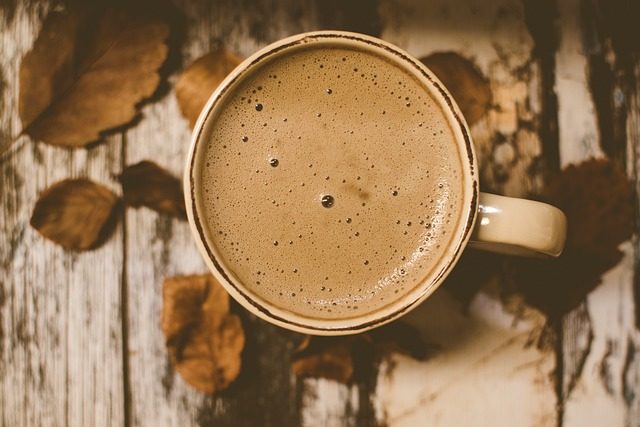
Specialty coffee’s popularity has surged in recent years, propelled by market trends and a growing fondness for top-notch quality and distinct flavors. This growing interest has led to the rise of a vibrant specialty coffee culture, where coffee lovers eagerly seek out new experiences and flavors, and delve into the history of specialty coffee. They share their passion for specialty coffee with fellow enthusiasts.
From the third wave of coffee, which emphasizes sourcing, supply chain transparency, and flavor nuances, to the growing number of specialty coffee shops and roasters, the specialty coffee culture is thriving and shows no signs of slowing down. A coffee trade journal would be an excellent resource to stay updated on this ever-evolving industry.
Market Growth and Trends
The specialty coffee market is experiencing significant growth, with the UK market alone projected to grow at a rate of 13% year on year. This growth is fueled by consumers seeking out high-quality, single-origin options that offer a unique and memorable drinking experience.
As the market continues to expand, we can expect to see even more innovative and diverse specialty coffee options, as well as an increased focus on sustainability and ethical practices within the industry.
Specialty Coffee Options
The world of specialty coffee offers a myriad of options for coffee lovers to explore, from classic espresso-based drinks like cappuccinos and lattes to more innovative creations that showcase the unique flavors of the beans. As consumers become more discerning and knowledgeable about their coffee preferences, the demand for these specialty coffee options will continue to grow.
With an ever-expanding array of specialty coffee beverages at our fingertips, there’s never been a better time to dive into the world of specialty coffee and discover the unique flavors and experiences it has to offer.
Learn more, visit 10 Specialty Coffee Drinks You Need To Try This Winter.
Choosing Specialty Coffees
When selecting specialty coffee, it’s fundamental to make enlightened decisions that uphold both quality and sustainability. By choosing specialty coffees that have been carefully sourced and produced, consumers can enjoy not only an exceptional cup of coffee, but also support ethical and sustainable farming practices that benefit both the environment and the coffee producers.
In this section, we will explore the factors that contribute to the quality of specialty coffee and the importance of supporting sustainable practices within the industry.
Identifying Coffee Quality
Grasping the elements that contribute to a coffee’s quality is vital when choosing specialty coffee. The Q Grade Score, combined with the expertise of the roaster and barista, can help discerning coffee drinkers identify the highest quality beans and beverages.
In addition to the Q Grade Score, the reputation of the roaster and the barista’s skill in brewing the coffee can also be indicators of quality. By paying attention to these factors, coffee lovers can ensure they are choosing the best specialty coffee options available.
Supporting Sustainable Practices
Opting for specialty coffees that emphasize ethical and sustainable farming practices benefits not just the environment, but also the coffee growers themselves. When selecting specialty coffee, it’s important to look for certifications such as Fair Trade, Rainforest Alliance, and Organic, which serve as an indication that the coffee was produced in an ethical and sustainable manner.
Backed by sustainable practices in the coffee industry, consumers can relish a delightful cup of specialty coffee while contributing positively to the environment and enhancing the living standards of coffee farmers globally.
Summary
From the dedicated farmers who cultivate the beans to the skilled baristas who craft the perfect cup, the world of specialty coffee is a captivating journey that celebrates quality, sustainability, and a passion for unique flavors. As we have explored the diverse growing regions, the rise of specialty coffee culture, and the importance of making informed choices when selecting specialty coffee, it becomes clear that this exceptional beverage is more than just a drink; it’s an experience that connects us all.
So, as you savor your next cup of specialty coffee, take a moment to appreciate the intricate journey from farm to cup and the dedicated professionals who have poured their heart and soul into creating the perfect symphony of flavors. Cheers to the world of specialty coffee and the endless possibilities it holds for coffee lovers everywhere!
Frequently Asked Questions
What are specialty coffee drinks?
Specialty coffee drinks include Espresso, Americano, Long Black, Cappuccino, Flat White, Macchiato, Latte, and Mocha – all of which offer unique flavor and texture experiences.
What is the difference between coffee and speciality coffee?
Specialty coffee is the highest-grade of coffee, grown with specific conditions that give it an unparalleled flavor. It is grown at the perfect altitude, with the right soil and harvested at the optimal time, making it one of the most tasty coffees in the world.
What are the two types of speciality coffee?
Speciality coffee is high-grade Arabica beans, which are known to have a superior taste compared to Robusta beans.
Speciality coffees are made from Arabica coffee arabica, which accounts for around 60% of global production.
What is the Q Grade Score Sheet?
The Q Grade Score Sheet is a comprehensive evaluation system used to determine the quality of specialty coffee, scoring its aroma, flavor and potential defects, with 80 or higher indicating it meets specialty grade standards.
This system is used by coffee professionals to assess the quality of coffee beans and determine whether they meet specialty grade standards. It is an important tool for coffee producers, roasters, and buyers to ensure they are providing the highest quality product. The score sheet is also used to identify potential defects.
What is the role of the coffee farmer in producing specialty coffee?
The coffee farmer plays an integral role in producing specialty coffee, from cultivating the finest beans to providing meticulous care.
This ensures that only the highest quality beans make it to the roaster.
